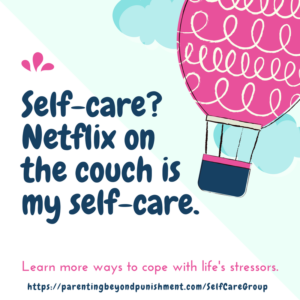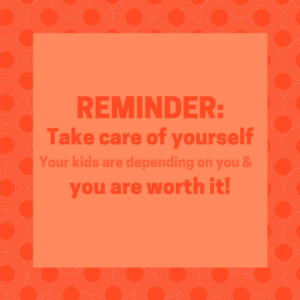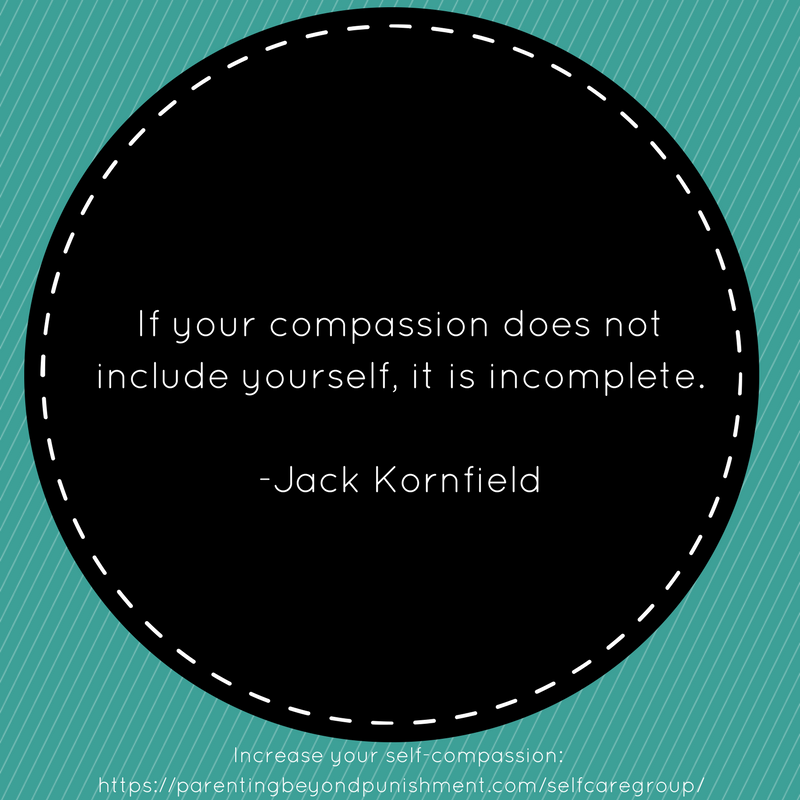https://app.acuityscheduling.com/schedule.php?owner=11809795&appointmentType=2663176Tired? I don't want to make any assumptions, but based on my personal and professional experience you may relate to one or more of the following scenarios of what it feels like to be utterly exhausted at the end of the day:
- It's all you can do to shower or brush the film off your teeth before falling into bed at the end of the day.
- You're so desperate for a bit of time to yourself you stay up "too late" knowing it's worth feeling exhausted in the morning.
- There's an end to the day? I'm up on and off all night nursing and caregiving.
As parents, many of us are utterly tired...to our core. You feel it in your bones. Here's what you may not know: you're not exhausted because you're undisciplined or because you need to get your act together or get more organized or try harder. It's because, as beautiful and "love-full" as it is to be a parent, it is also physically and emotionally demanding beyond anything we've ever experienced. And sometimes plopping on the couch with Netflix is all we can do to recuperate in time for the next day.
Your kids are probably fed, clothed (at least when people are around), and loved. And you know just how to elicit those ferocious tiny giggles that make your heart soar with love and gratitude. Ahh, the joys of parenting. You ARE doing it. We love our kids so much it threatens to split us wide open with joy...and wide open with overwhelm and exhaustion. #thestruggleisreal
How is it that parenting can be so lovely and so difficult at the same time? Honestly, I don't know. It's the most dichotomous mystery I've ever experienced.
As gentle, peaceful, conscious parents, we are determined to show our children they matter, to meet their emotional needs and to love them for who they are right now. We have wonderfully high expectations of how we want to parent - with curiosity, empathy, understanding, respect, and collaboration. And yet, no matter how hard we try to parent beyond punishment, we inevitably find ourselves struggling - we sigh with exasperation, unintentionally shame them, yell, or do some other thing that make us cringe. Despite our best intentions, we fall short of our expectations, then beat ourselves up, "why do I keep doing this? I'm such a jerk!"
I believe the reasons we struggle to shift out of this cycle are intricately tied to our own personal experiences AND/(or) to how we connect with and care for ourselves. If you've read my posts before, you know I believe it's important to understand and connect with our children. I believe it is also important to understand and connect with ourselves. From a caregiving perspective, if we don't care for ourselves, we can't possibly care for our children; striving to parent peacefully when you're depleted is like trying to run a marathon when you have the flu!
Self-care, however, is more than just keeping yourself in prime shape to care for your children and others. Self-care is also important because you are worth being cared for.
Yes, you.
You, in your own right, are worth love and care. Not because you're a perfect parent or spouse or friend or colleague. Not because you make the most money or the most delicious dinners or paint the most beautiful pictures. You are simply worthy. Because? Because: you.
You may need another reason; I understand. Being worthy is not a message we often get from society. That's unfortunate. So I'm going to say it again. And perhaps again and again and again. You are worth it. You are worthy of appreciation. You are worthy of self-care. You are worthy.
I know I can't convince you. That's not really my "job" or my goal. I just want you to know that I think you are worthy. And in the same way, I want our children to believe THEY are worthy; I want my child to believe she is worthy. Not because they made the soccer team or an A in biology or because they received an award f0r good behavior. They are worthy just because.
But I digress (you are worthy).
As I said above, trying to parent from a place of love and understanding, without also refueling and caring for yourself, is like trying to run a marathon with the flu: damn near impossible; never mind trying to enjoy it. Isn't that what we were really hoping for when we decided to be parents, to enjoy it? And yet we're so exhausted and overwhelmed that enjoying it is barely even a far-off dream anymore.
So what can be done about our exhaustion and overwhelm doesn't involve more help, more money or more time? I believe that there are small changes we can make in our everyday responses to life that can help fill our cup, rather than deplete us further, and these everyday responses are the essence of mindful self-care.
"But I don't have time for self care!"
"There's no one to step in and help, much less rub my shoulders and bring me a hot cup of coffee."
"I don't have the money to do anything else."
I know. You ARE tired and overwhelmed. You work, take care of the kids and pets and others, cook and grocery shop and wash clothes. And you don't have the time or the help or the money for self-care, much less the energy to add one more thing to your "to do" list. That's what I love about mindful self-care. It's not about adding something else to your to do list or having you do something that requires more time, help, money or energy than what you have right now. Instead, it's about one simple way to give back to yourself that doesn't require more from you. One simple thing to support you and help you enjoy your everyday life more. What is mindful self-care?
"Mindful self-care is a way of caring about - and for - yourself that affects how you feel, think and talk both to others and yourself."
-Sheila Pai, A Living Family
I find this description breathtaking. It resonates with me deeply, and I feel a shift of perspective stir in me a mix of both fear and hope...at the same time (more dichotomy, I know).
I'm curious to know, when you read Sheila Pai's description of mindful self-care, what stirs in you?
I think about how often we judge our mistakes...our inevitable, human mistakes! Sometimes, when I wish I were perfect, I take time to imagine just how insufferable I'd be if I didn't make any mistakes - isn't it great to know you'd be insufferable too if you made no mistakes? Perhaps not. Such as it is, we must live with our mistakes because we're going to make them whether we want to or not. The key is to not allow our mistakes to drown us, and we do this by cultivating self-compassion.
The idea of self-compassion scares many people - how will you be motivated to work harder if you're being kind to yourself? How will you get anything done or become a better person? Turns out, we'll actually have MORE motivation and energy when we cultivate self-compassion because when we feel bad we do worse, and when we feel better we do better - just like our kids! When we judge and beat ourselves up for our mistakes, we deplete ourselves of precious time and energy that could be better spent noticing our mistake, deciding how we want to respond next time, and moving on to enjoy our everyday lives with our children. We don't need to waste our time and energy ruminating on our mistakes. When we judge ourselves for our inevitable mistakes and follies, we trigger a fight-flight-freeze response in our brains, which shuts down our ability to learn and reinforces our negative response to ourselves and those around us, including our children. When we judge ourselves we keep ourselves in the same cycle of mistake-judgment-despair-exhaustion, and we continue to miss out on the everyday joys we might otherwise have the energy to experience.
Today I hope you will consider practicing self-compassion as one aspect of mindful self-care. Being self-compassionate means that no matter what happens, you choose to extend the same kindness and understanding toward yourself that you would toward your children or spouse or a good friend. Research shows that people who cultivate self-compassion have a greater sense of well-being than people who judge themselves.
Instead of allowing your mind to replays your mistakes over and over, gently guide your mind toward alternative responses for the next time this situation, or a similar one, arises; because, as we all know there will be another opportunity - #parenting! Cultivating self-compassion is the first step toward changing your unwanted reaction into a helpful response in everyday activities.
It takes practicing mindful intentions to cultivate self-compassion:
- Notice without judgment that your mind wants to judge and ruminate on your mistake.
- Interrupt the self- criticism (remember everyone blows it at times).
- Breathe: inhale into your belly, then slowly exhale - create a calming response and allow your prefrontal cortex to engage.
- Offer yourself kindness: you are worthy
- Do over! Role play or picture in your head how you will respond next time.
- Repeat as needed when your mind wants to judge.
As parents it's important to learn to recognize and meet our children's needs AND model for them what it looks like to recognize and meet our own needs. We nurture our children so they know what it feels like to be nurtured, and we nurture ourselves so that our children know how it looks to care for and value ones self. I'm not talking about selfishness, I'm simply talking about self-care. Mindful self-care...for busy parents.
You're not just doing your best, you're actually DOING IT. You are parenting - the verb - with love and care.
I hope you will practice mindful self-compassion - try it for a week or two and notice if you begin to feel emotionally and/or physically different.
If you're looking to learn more about mindful self-care you can download my Mindful Self-Care for Busy Parents eWorkbook and learn how to use sustainable practices aimed to decrease your overwhelm and increase your enjoyment of everyday life.
Need some hashtags? #mindfulselfcare #selfcompassion#iamworthy #parentingbeyondpunishment #wildchildcounseling #



